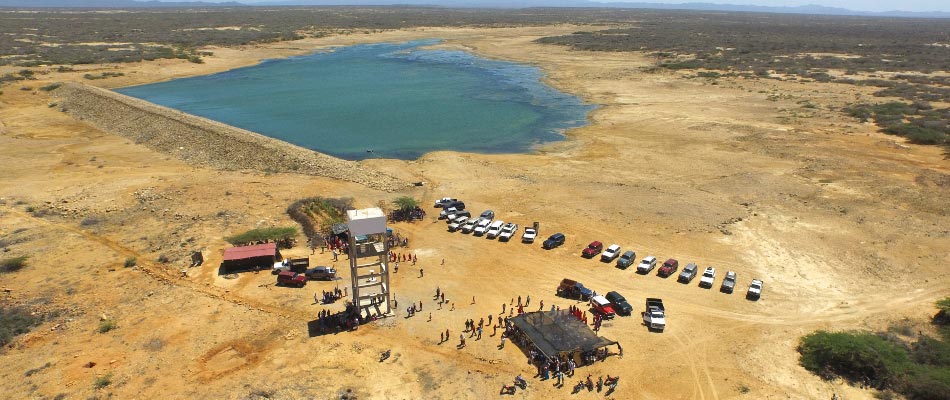Contributing to the United Nations' 2030 Agenda
Through the following SDGs:
Alta Guajira Human Rights Impact Assessment
Implementation of the due diligence process by conducting a human rights impact assessment.
When carrying out the 2D seismic study in the Guajira Peninsula in Colombia, we conducted a human rights impact assessment between late 2014 and early 2015, as part of the human rights due diligence process. As a result of the assessment, we identified the following sensitive elements:
Civil and Political Rights:
Economic, social, and cultural rights:
Labor rights:
Indigenous peoples:
Vulnerable groups: Discrimination and gender violence are a generalized problem in Colombia among groups such as women, Afro-descendants, and LGTBI groups in the political, social, and economic spheres.
Five major variables

Following the assessment, we identified 5 human rights impact factors in the area:
The EIDH also establishes lines of action necessary to continue respecting human rights:
We believe that respect for human rights is one of the fundamental pillars of our activity and that the responsibility of respecting them should be the basis for how we conduct all of our operations. We base our work on the implementation of the United Nations "Protect, Respect, and Remedy" framework through the application of the "Guiding principles on businesses and human rights." We undertake to respect the rights set forth in the International Bill of Human Rights and the rights established in the International Labor Organization Declaration on Fundamental Principles and Rights at Work.
We also have our own Human Rights Respect Policy to prevent our activities or decisions from having negative consequences on human rights and repair the damage caused if they occur. This policy is divided into three phases:

This human rights impact assessment showed that the following actions received a particularly positive rating by each of the stakeholders:
The Communities highlighted the investment for water management, the prior consultation, the relationship with the communities, the conclusions of agreements for compensation to fishermen. They liked to express themselves and highlighted our respect for freedom of expression, as well as health, ophthalmological, and dental campaigns.
Moreover, employees and subcontractors’ employees stated that they were easily able to communicate with security forces and appreciated the improvement in employee safety. Futhermore, they spoke positively about their salaries, high HSE standards, and access to social security for formal employment. They also valued the prior consultation, improved livelihoods for contractors, and redefined travel costs.
Contributing to the United Nations' 2030 Agenda
Through the following SDGs:

SDG 8
Decent work and economic growth

SDG 16
Peace, justice, and strong institutions
Related links